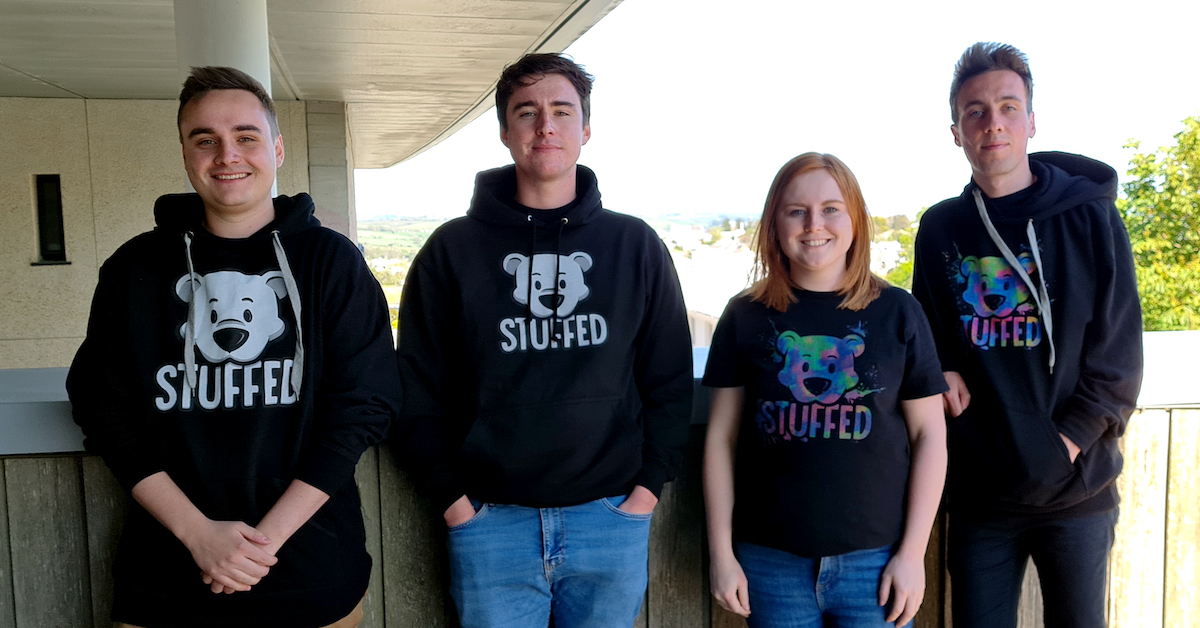Having your own studio working on a passion project is the dream of many students learning about games development.
And it’s a dream that came true for Waving Bear Studio’s co-founders when they created their own outfit while studying at Portsmouth University in 2016, before an official launch after their graduation in 2018.
“Our uni let us do a gap [year] between our second and third year, and either work for another company or create our own,” co-founder Matt Busuttil, also animator and project manager, tells the GamesIndustry.biz Academy. “And we thought, ‘Why don’t we have a go at it ourselves and see what we can do for the end of the year, make our own business?'”
The team also included Lucy Earp, now director and 3D artist, with CTO Dan Busuttil soon joining them as well.
“We thought, ‘Why don’t we have a go at it ourselves and see what we can do for the end of the year, make our own business?'”
Matt Busuttil
They started working on a concept that would soon become Stuffed, a different kind of co-op first-person shooter, taking place in the dreams of a little girl. As teddy bears, players have to defend her against nightmares, in a procedurally-generated world.
Earp is the one who originally came up with the concept, which evolved from a “Five Nights at Freddy’s horror vibe” to something more kid-friendly when the team realised — after showing the game at conventions during their placement year — that children really enjoyed it.
“[We thought] maybe there was a market here, where [children] are clearly craving these sorts of games but obviously aren’t allowed to,” Matt Busuttil says. “So, we went back to the drawing board, and went, ‘Okay, let’s try and cutesy this up’. What is drawing them to it, and what can we do about that? See what can we keep that they’re enjoying, make it age appropriate, and more casual.”
Stuffed is now set for a release in Early Access on Steam this year. But the road from game development student to releasing a project under their name was long and winding. Waving Bear is very earnest about the challenges it has faced since the studio’s inception, and keen to share the lessons learnt along the way to help peers in similar situations.
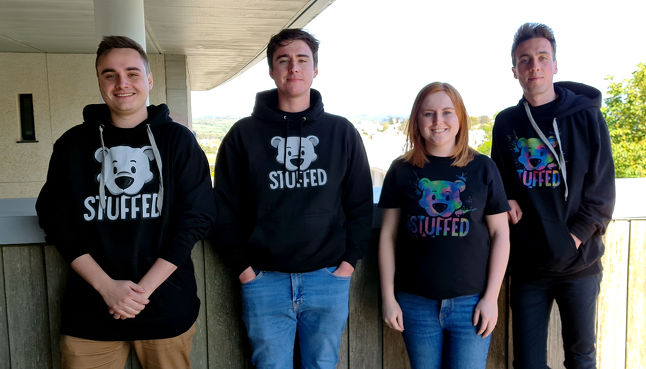
Above, from left to right: Matt Busuttil, Dan Busuttil, Lucy Earp, Ashley Wharfe
Do your research, give yourself time
In 2018, before the team even graduated, Waving Bear set up a Kickstarter for Stuffed. The funding goal of around £60,000 was ambitious and ultimately wasn’t reached.
“We were all in our third year of uni, we had been rejected by a few publishers and still wanted to carry on,” Matt Busuttil says. “We were still getting buzz around [Stuffed], so we thought we’d try and raise the money through Kickstarter. We didn’t know what we were doing at all. So, we jumped in head first to Kickstarter while we were doing our dissertations. That failed horrendously. I think we got £2,000. But if we’re completely honest, I think that was a blessing in disguise because we wouldn’t have been able to do what we [promised]. We were just too early at the time.”
Kickstarter is still a platform of choice for funding games development. A total of 408 crowdfunding campaigns met their goals in 2024, the highest number for video games since 2014. So if that’s an option you’re exploring, the Waving Bear team has words of advice, lessons learnt from its own experience.
“Everything costs more than you think, and takes longer than you think, and a lot of people don’t realise that. We didn’t realise that at the time”
Matt Busuttil
“Do your research,” Matt Busuttil says. “Make sure you actually understand how that world works. Understand how marketing works. Make sure to give yourself time. We gave ourselves two months’ prep to do this. That was nowhere near enough. You need to really try and market your game. You need to get that secure fanbase for it.
“And there are a lot of things with Kickstarter that people don’t realise. You do need to have a big chunk of the money beforehand. I think they even recommend themselves to have half the money that you want already, and this is just treated as a top-up. So it’s quite rare for someone to come on with no experience to understand what they’re doing with Kickstarter, and then get the money.”
Dan Busuttil highlights that the issue with setting up a Kickstarter coming straight out of uni is that you either don’t know how much money you need or you don’t know how long it’s going to take.
“You think you can do it all on this small budget,” he says. “Most of the time, you don’t get that budget anyway, but I feel like even if you did get that cash, you would really struggle with getting it done in time.
“You need to be a semi-functioning studio beforehand, and then asking for that cash to keep yourselves going, because you do also end up cannibalising a lot of sales. If you do get £100,000 committed through Kickstarter, that’s £100,000 of game sales already done, already spent, because they’re not going to buy the game again.”
Matt Busuttil continues: “Everything costs more than you think, and takes longer than you think, and I think a lot of people don’t realise that. We didn’t realise that at the time.”
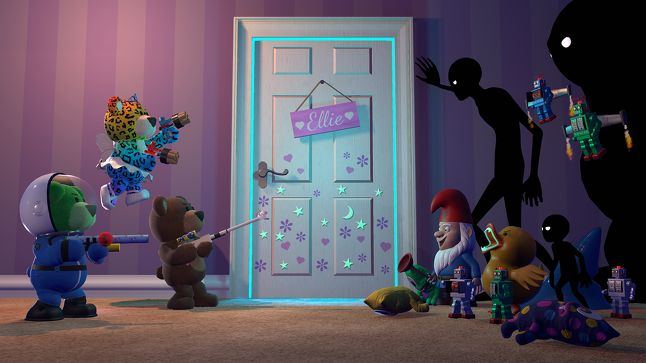
Waving Bear’s Stuffed is due to release this year
Look for opportunities everywhere
After the Kickckarter, the team looked for opportunities to keep going and found one in the form of a tech incubator in Cornwall: Launchpad. It’s around that time that 3D artist Ashley Wharfe joined the studio. He originally met Matt Busuttil during his third year as they were working on a uni project together.
“Matt messaged me, just out of the blue, because there [initially] was another artist [but] he didn’t want to come down to Cornwall, and they panicked,” Wharfe smiles. “I had nothing else going on, so I was like, ‘Yes, sure, I’ll move halfway across the country to start a studio with you’.”
“We were prepared to pivot in so many [directions]. Every grant that was available, we were looking at. Every investor, publisher”
Ashley Wharfe
Launchpad funded the first year of Waving Bear as a full-fledged studio, with the team able to focus on development full time.
“That was really useful, and we recommend it to any students coming out of uni,” Wharfe says. “If you can find some kind of scheme like that where you can be funded to work on [your project] full-time, it’s a really useful transition from that student to that professional, full-time working mentality. And then, beyond that, when we were trying to raise funding. I think the mindset was: any and all funding was a good option.
“We were prepared to pivot in so many [directions]. There was an esports investor [so] there was one point we were going to turn the game into a full competitive esports mode. Every grant that was available, we were looking at. Every investor, publisher. It was just being open to options, really.”
Remember that you’re running a business
Another very important lesson when launching your own studio to work on a passion project is to remember that you’re not only here to develop a game. You are running a business, and you should focus on ways to stay afloat, even if that sometimes means making changes to what you’re working on.
“I think we all saw that trap, how you separate yourself from your product,” Dan Busuttil says. “Some people focus on getting this product to the market, rather than, ‘We’re a studio here, how can we keep going?’ And then build the product as well. [For us], it was just: how do we keep ourselves going as a studio? We were even looking at mobile at one point. We’re just constantly looking at ways to survive, really. And then, eventually, we got to the position where we are now, where we could get investment in.”
“Some people focus on getting this product to the market, rather than, ‘We’re a studio here, how can we keep going?'”
Dan Busuttil
Dan mentions this misconception that everything starts from an idea that you pitch to a publisher, and then you get “the lump sum of £300,000 your way.”
“That’s almost unheard of,” he adds. “We do know one team that did do that, and they were successful from it, but you don’t really hear it anywhere else from indie teams, especially if you’re just starting out. We mentor some teams, and they often have that mentality of, ‘So, we’ve got this game idea, and we’re just waiting for this £300,000’. But eventually, they come around to the idea of it being very, very difficult.
“If we look back now, three years ago, you would see that we were attached to this game rather than what we could do with it. You have to look at where the market’s going. You can probably bend most IPs into some sort of market fit, or some sort of appealing product. It’s just separating yourself enough, and being around long enough to see those changes that you can make. That’s the hard bit. But sometimes, it’s this or die, really.”
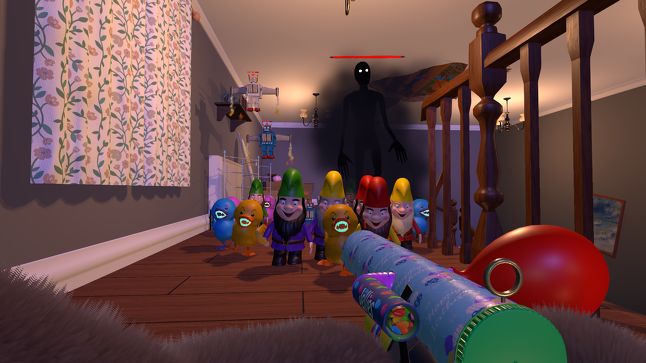
Waving Bear is hoping to be able to bring Stuffed to console next year
Matt Busuttil agrees, and adds that the hardest thing when launching your own studio is simply to keep going, and that it’s easier to find small investments than to wait for a big sum of money that you think is going to “solve all problems.”
“I think this time last year we got £5,000 from an investor, which in the grand scheme of things isn’t a huge amount, but we were over the moon because that meant we could then hire someone to help us,” he says. “And it’s all these small stepping stones. It’s like, ‘Okay, we got a little bit of money there, that means we can get here’. It’s a marathon, essentially, instead of a sprint.
“It’s a marathon, essentially, instead of a sprint”
Matt Busuttil
“People forget that you’re still running a business. Even if you’re selling flowers or you’re a bakery, there’s still the business side that people forget they have to do. You have to figure out the taxes, and how all that sort of stuff works, and in the same way, you’re not building the game for yourself. Don’t get me wrong, we love what we’re doing, and we do enjoy the product, but you have to mould to what the audience wants, and you can’t just be like, ‘I love this thing, I’m putting this in it’, if it’s not going to sell and it’s not going to attract people. You do have to bend and change, and I think some people can’t get past that.”
On the topic of figuring out taxes and other aspects of running a business, Wharfe adds that early on they didn’t know about investment schemes such as the UK’s Seed Enterprise Investment Scheme and Enterprise Investment Scheme until investors asked them about it. He invites every new studio founder to really research these options ahead of time so they know what they’re talking about when meeting with investors.
Learn how to deal with people
The games industry is a people business. That means that, when launching your own studio, you need to learn the various facets of what dealing with people means. Constant rejection is one of them.
“Daily, multiple times a day,” Matt Busuttil adds. “You have to learn to deal with rejection. That gets easier, to the point where it doesn’t really bother us anymore, but you have to get really good at understanding feedback, and understanding why someone said something.
“So, if someone’s saying ‘This game is crap’, why are they saying that? Do they just not like that genre? Is there thought behind that, or are they just hating on your product? You really have to decipher [it].
“You have to learn to deal with rejection. That gets easier, but you have to get really good at understanding feedback”
Matt Busuttil
“We got feedback this morning, someone emailed us, and it was such a horrible email, but we looked at what they said and went, ‘Actually, that’s a good point’, and we fixed something. You have to learn that a lot of these people forget that you’re individuals, and it’s not some big, corporate company behind the screen, and it’s quite hurtful, sometimes, but you have to separate yourself from that. On top of that [there’s] just random hate as well, people saying all kinds of horrible things on social media, and you’re like, ‘Why do you care this much?'”
It’s also about learning to talk to different types of people, from an established game publisher interested in your pitch, to an investor who knows way less about the medium.
“I feel like games people get in a bubble where they only talk to other games people, and assume that everything they do is games, and they understand all these nuances, whereas if you’re talking to an investor, they might not necessarily understand that, so you have to change your language,” Matt Busuttil says.
“You have to talk more about the money side of things, how the company’s going to grow, or you as individuals. Whereas when you’re talking to a publisher, it might just be the game focus. So, reading who you’re talking to, and being able to change your pitch, essentially.”
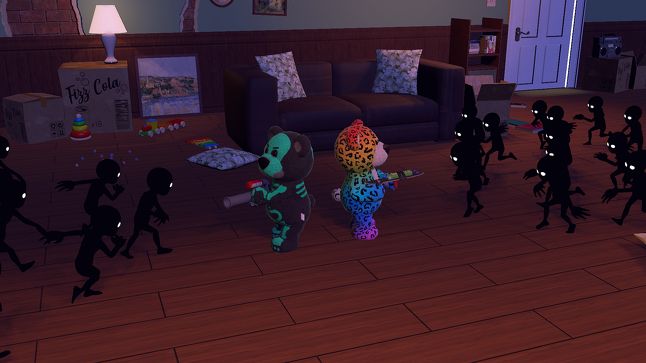
Waving Bear wants to keep supporting Stuffed ‘for as long as people are interested’
Go for it, but don’t forget to have fun
When asked for a final word of advice for students looking to launch their own studio, Ashley Wharfe says that it might sound like a cliché, but that “if you want to do it, just do it, and stick with it.”
“If it’s something you want to do, there are ways through it,” he continues. “There are ways to get funding. There will be other people who want to do it with you, just take the gamble, really. Do it, try it, and don’t give up. You’re going to get rejected. There are going to be hard times. There are going to be points where you think of throwing in the towel. But if you stick with it, then hopefully, at some point in the future, you can get to where you want to be with it.”
Dan Busuttil adds that not only should you go for it, but you should enjoy it. If you’re not, this might not be the right move for you and the outcome might not be positive.
“If you have the passion, the drive and the resilience to getting knocked back, because you will get knocked back a lot, then just go for it”
Lucy Earp
“Start doing it, yes, but the key bit is to enjoy doing it, and believe in [it],” he says. “The bits about having funding, they’re the hardest bits, and if you don’t actually enjoy either the product you’re working on or the industry you’re working in, the chances of it working out are just so slim.”
Earp echoes their sentiment, highlighting how hard the whole process is, but how much enjoyment you can also get from it.
“It’s not easy but it’s still really fun,” she says. “And I’m really enjoying it still, even several years down the line. I’d much rather be making this than working just a 9 to 5 job. So, if you have the passion, the drive and the resilience to getting knocked back, because you will get knocked back a lot, then, yes, just go for it.”
Matt Busuttil goes back to a previous point he’s made: the hardest part is just to keep going. But he argues that the amount of work that goes into developing a game is time well invested if it’s invested in yourself rather than someone else’s company.
“There have been a lot of times when you’re like, ‘We could just end it now and walk away.’ The hardest thing is just to motivate yourself to keep going. The thing is if you do get a job in the industry, you’re going to be working just as hard anyway, for someone else. You might as well put that effort into your own time. Invest in yourself, basically, to see what you can get done. You’re just going to look back at it otherwise, thinking, ‘I should have done that’. Things take time, as well. It’s not an overnight success. It takes years.”
“The thing is if you do get a job in the industry, you’re going to be working just as hard anyway, for someone else”
Matt Busuttil
Looking at the future, the Waving Bear team is aiming to launch Stuffed on console next year, and hopes to be able to build more IP within the same universe. The studio would also love to keep Stuffed going as a live game “for as long as people are interested” instead of just moving onto the next game immediately.
“Leading on from that, outside of the context of the game, the goal is always just to keep growing the studio bigger and bigger,” Wharfe says. “So, bring on more developers, more artists, and other roles. It’s just constantly trying to grow, always pushing to be bigger and better.
“And hopefully get a bigger room than this one day — I don’t think we’ll fit many more in than we’ve currently got,” he laughs.
More GamesIndustry.biz Academy guides to Working in Games
Our guides to working in games cover various perspectives, from hiring to retention, to landing the job of your dream or creating the right company culture:
GamesIndustry.biz
Source link
Related Post:
- Splitgate's final release is delayed while studio revamps server infrastructure
- Build your university your way in Two Point Campus, coming to PS4 and PS5 – PlayStation.Blog
- Lessons from the 'endless' runner Minion Rush
- Leadership lessons from Satoru Iwata
- CD Projekt Confirms Commitment to Improve Cyberpunk 2077 While Announcing Financial Results
- Hayao Miyazaki at Ghibli observed something while making Totoro
- Witcher fan wins Olympic gold medal while wearing Geralt's medallion
- What's a game you like to play while doing or watching something else?
- Please enjoy Discord while it's still good
- Intel DG1 GPU beats AMD’s RX 550, while the DG2 targets Nvidia’s RTX 3070
